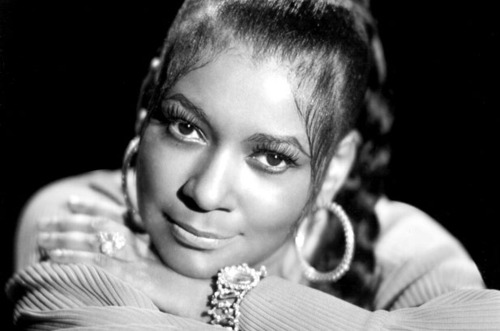

If hip hop has a grandmother, it’s got to be the late Sylvia Robinson, founder of Sugarhill Records, which spawned timeless and foundational party hits like “Rapper’s Delight” and “White Lines” among others.
Sylvia Robinson was an artist and a mogul who officially entered the music business at the tender age of 14, when she scored a recording contract as Little Sylvia with Columbia Records in 1950. A few years later, she started learning how to play guitar from Mickey Baker, a Kentucky guitarist who had recorded with Ray Charles and would later become Sylvia’s recording partner. In 1957, Mickey and Sylvia had a number one R&B hit “Love Is Strange,” the frequently-covered tune that’s best remembered today as the song in a key seduction scene of the movie Dirty Dancing.
Sylvia and her husband, Joe Robinson, started a label called All Platinum in 1967. Three years later, she co-wrote and produced “Love is a Two-Way Street” for The Moments, a soul act signed to All Platinum sublabel Stang Records. The song was given new life in 2009 when it was sampled for the Jay Z (featuring Alicia Keys) hit “Empire State of Mind.”
By 1972, Sylvia was back on the charts with “Pillow Talk,” a sassy solo single she had written for Al Green that the star passed on recording after having recently become a reverend.
Leland Robinson remembers his mother as a dynamic woman who knew how to create a hit, and how to pick out a hit artist.
“She was a great A&R, she was a great producer, she was a great engineer, she was a great guitar player, musician, she was a great singer — she was just great all around the board,” he marveled. “She was a hands-on person. She worked in the studio with the artists, she mixed the records with the artists, and she did whatever she believed in. If she didn’t believe in it, she wouldn’t have done it.”
With the launch of Sugarhill Records in 1979 via a single called “Rapper’s Delight” by the Sugarhill Gang, Sylvia was making an international statement that the burgeoning rhythmic musical artform of hip hop deserved to be recorded.
“She was a woman that never got the recognition that she really should have gotten, and I think it’s because she is a woman,” said Leland. “I think that if it was a man in her position that started rap music then he would have been glory to God, but being that it was a woman, I just think that they don’t recognize it as being the person that started a legacy.”
Leland also lauds his mother’s business acumen, which he considers the catalyst for a global movement that’s still thriving today.
“What she did as a woman was she started a multibillion dollar business for everybody,” he asserted. “She’s helped out people that were in the ghettos, people who never had anything. They should be thankful for what she created. And she had a hard time creating it! [Radio stations] wouldn’t even play the record at first. They told her that ‘Rapper’s Delight’ was a phase, that it wasn’t going anywhere. The exact words were, ‘Sylvia, you don’t have to stoop this low.’ But by her taking the time to stoop this low, that’s what she got out of it, the biggest rap record of all time.”
Source: BravoTV.com
